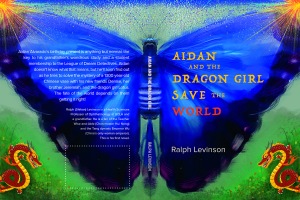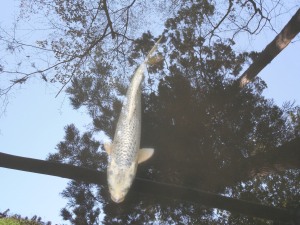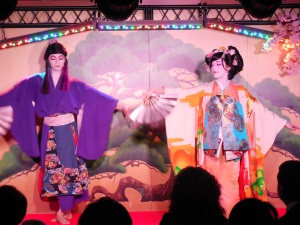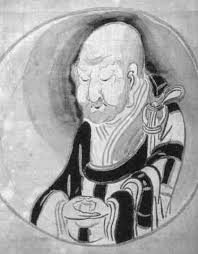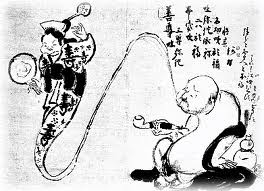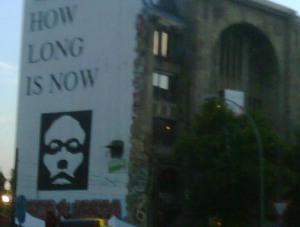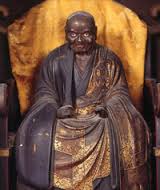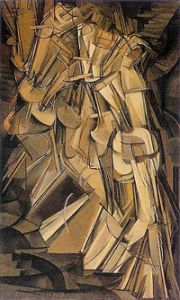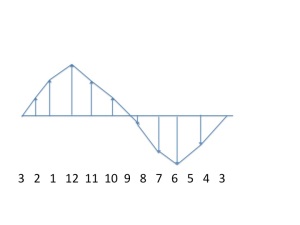Cover of my first novel. You can look at ralphlevinson.com for more
Note:
I edited this for format and minor changes in text on 6/11/18
I am getting ready to self publish this novel for older kids (and grown ups!). It is the second novel about Aidan who travels through time and space in his dreams to solve cosmic mysteries. I’m waiting for my friend who is working on the cover then there’s always this and that to do. Self publishing means each hard copy is a bit expensive, but it will be on kindle and nook and if you know someone who cant afford a copy let me know. I just like hard copies! Anyway heres the first five chapters just for fun.
In this novel he has to solve the mystery of the golden feather; he goes to Tang China, Nalanda the Buddhist university in ancient India, meets a naga, Taxila where Alexander’s troops are ready to invade the Indus Valley, an Ancient Greek island and finally faces a cosmic battle in the realm of the dead in Ancient Egypt.
Busy boy!
One of his mentors is Wise-and-Able, Red Pine’s translation of the name of the 6th ancestor of Zen in China, Hui Neng.
Enjoy (note the spaces are a feature of the website; ignore) :
Aidan and the Mummy girl Save the Universe
Dedicated to those who try not to be trapped by their stories
Chapter 1. That Mummy Case
Aidan Alvarado put the large old-fashioned metal key into the lock of the door to his grandfather’s study.
Turn the key, he thought. It won’t turn by itself.
Or maybe it would. He wouldn’t put it past the study to give him a nudge if the time was right.
Maybe the time wasn’t right. The key wasn’t turning by itself, and Aidan wasn’t turning the key either.
KoKo, his grandparents’ mostly black German shepherd, nuzzled Aidan’s arm.
“Don’t rush me, KoKo.”
Ever since Aidan finished his first case as a junior dream detective and saved the world, he followed his grandfather’s advice to just be a kid again for a while.
No traveling through time and space in his dreams. No dangerous people like the greedy ancient Chinese General Ling or the powerful renegade dream detective Diamante Petrus who tried to kidnap Lotus, a dragon princess, in order to force her father, the Dragon King of the East Ocean, to use his powers to help them rule the world.
No study that gives you clues. He hadn’t set foot in there for over three months.
Being a dream detective and saving the world was exhausting. Taking a break was a good idea.
Still, he missed it. Homework and studying and grades were boring after all he had been through, and that was a problem. He didn’t put any effort into his schoolwork, and he didn’t much care. It’s not like the fate of the world depended on it!
His grades tanked.
He promised to do better but never got around to it. He just got his report card and his broken promise was obvious. Cs and a couple of Ds. Ds! He had never gotten a D on a report card before in his whole life.
His poor performance at school was not going over well with his mother, not only because she was a teacher, Aidan decided, but also because she was a mother, always looking for things to worry about. His report card was going to be something for her to worry about.
Maybe a new dream detective case was what he needed. Excitement. A challenge. Something that mattered. On the other hand, it might be overwhelming, scary, tiring, and totally terrible for his grades.
The study could help him. It had a way of telling you what you needed to know. Or, it might suck him into a case before he was ready, like dream detective quicksand, complicating his life and making things worse.
He probably shouldn’t take the chance. It was too risky. He was on shaky ground as it was. Better to walk away, right?
Nah. He was going in.
Aidan turned the key and the door slowly swung open. The musty, dusty smell of old books swept over Aidan, and musty and dusty smelled like adventure and mystery.
Aidan’s grandfather, Emanuel Prosperowitz, greeted him when he stepped inside the study. “Aidan! Welcome. I was bored. Come keep me company.”
Aidan didn’t believe him for a minute. His grandfather was never bored.
Aidan’s grandfather was sitting in one of the two large ratty old over-stuffed chairs. His grandmother, Jane Prosperowitz, was sitting in the other one.
“Sleeping well?” his grandfather asked. “Any special dreams lately?”
“I thought you were bored and needed company?” Aidan challenged.
“I was kidding. Jane never lets me be bored,” his grandfather responded, laughing at his little joke as Aidan’s grandmother rolled her eyes. “But you didn’t answer my question.”
“No, Grandpa, no special dreams.” Aidan was pretty sure his grandparents already knew that.
“I had an interesting dream about the Emperor Wu,” his grandmother offered.
Aidan felt a rush of energy go up his spine. At the end of his first case Emperor Wu told Aidan that she’d need his help as a dream detective again.
“Does anything in the study grab you?” his grandmother asked.
Looking around his grandfather’s study was not simple. The shelves went up almost 30 feet and books and papers were piled up and scattered around everywhere. Aidan scanned the library quickly since thinking too much got in the way.
On top of the old wooden filing cabinet there was a large feather that he hadn’t noticed before. A feather wasn’t nearly as interesting as the fossil dinosaur skull or the samurai sword, but those were old news.
Aidan shrugged. “Not really.”
“We’re stuck. We’d like your help. Look again,” his grandfather said.
Aidan looked all the way up to the top shelves. Nothing glowed. Nothing shifted. Nothing did anything. He climbed a few rungs up the ladder by the shelves and reached out without looking. His hand touched a book. Aidan took the book off the shelf and climbed back down.
His grandparents were smiling.
“You’re really getting the hang of the study!” his grandmother said.
Aidan loved her smile. Few things in the world were that warm and sincere.
Aidan read the title of the book out loud. “‘The Egyptian Book of the Dead.’ Wow, that’s kind of creepy. But what does that have to do with Emperor Wu? She’s not from Egypt.”
“That’s right,” his grandfather agreed. “It’s very odd. Not only wasn’t she from Egypt, but Emperor Wu lived 1,300 years ago, and ‘The Egyptian Book of the Dead’ was written 3,500 years ago.”
“It’s a book about dead people?” Aidan asked.
“‘It’s been ages since I’ve looked at it, but as I recall ‘The Egyptian Book of the Dead’ has instructions on how to get through the trials the dead person faces in the afterlife,” his grandfather explained. “‘The Egyptian Book of the Dead’ wasn’t what the Egyptians called it. They called the book ‘Coming Forth by Day’—”
“You mean the dead came out in the day?” Aidan was getting interested. “Like zombies?”
Before his grandfather could answer, Aidan found himself looking at the mummy case standing in the corner.
That mummy case! When Aidan first met Diamante Petrus he almost convinced Aidan that there was a mummy in there. That was just mean. But it wasn’t the meanest thing Diamante Petrus did. He pulled a gun on Aidan and his friends (sure, it wasn’t loaded, but still!) and tried to kidnap Denise Hu and steal the piece of the vase with the dragon spirit so he could rule the world.
Aidan was notin the mood for anything to do with that mummy case.
Aidan looked away.
Then he looked back.
Then away.
But it was no good.
He knew it. Dream detective quicksand!
Aidan sighed. “This is gonna be about that mummy case and Mr. Petrus, isn’t it?”
His grandparents both nodded.
Aidan moaned. “This isn’t gonna be good for my grades, is it?”
“Let’s not get ahead of ourselves,” his grandmother said.
“I’m gonna have to see that Petrus guy again,” Aidan grumbled.
His grandfather shrugged. “You can handle it. Maybe he’s not such a bad guy.”
“Not such a bad guy? The whole gun and rule the world thing seems bad guy enough for me.”
“He got carried away,” his grandmother said, “but we should give him a chance to make up for it. He was really sorry. Believe it or not, he had his reasons, and they weren’t all bad. He thought he could use the dragon’s power to make the world a better place. Sure, he went a bit crazy—”
Aidan exploded. “Sometimes you two drive mecrazy! I know he’s your friend, and you think he meant well and you like to be nice, but you can’t be thatblind, can you?”
His grandfather stood up. “Show your grandmother a little respect, young man. This is a big world and for dream detectives it’s vastlybigger than most people can imagine. You still have a lot to learn—”
“Really, both of you! What did I just say about not getting ahead of ourselves?” Aidan’s grandmother scolded.
“Sorry,” Aidan and his grandfather said at the same time.
Actually, Aidan was a bit surprised. He knew his grandmother was the top dream detective, but Aidan never saw his grandmother shut his grandfather down and take charge quite like that before.
“Back to business!” his grandmother ordered. “Aidan, I think you’re right, something is brewing and it likely has to do with that mummy case because the study clearly spoke to you just now.” She took the book from Aidan and put it aside. “But I’m also not sure what all this has to do with Emperor Wu.”
“Or Diamante Petrus?” Aidan asked.
“Or Diamante Petrus,” his grandmother agreed.
KoKo nudged Aidan. She had left while they were talking and returned with a rubber ball in her mouth.
“Are we done? Can I play with KoKo?” Aidan asked as he took the ball from the dog.
“Are you sure you haven’t had any special dreams?” his grandfather asked.
“Nope. No special dreams.”
His grandparents nodded again, but they didn’t say anything. They were lost in thought. Aidan took that as an opening to leave and play with KoKo.
Aidan kicked the ball in the back yard for KoKo to chase. Was there going to be a mystery with Emperor Wu? He’d probably see Lotus, the girl who used to be the dragon named Princess Peace. That would be awesome.
But first there was still the matter of his report card.
Aidan waited until after dinner to give his mother, Anna Prosperowitz Alvarado, his report card. She looked it over for all of five seconds, and then handed it back to him.
“There’s been some mistake,” she announced.
“No mistake,” he murmured.
“Oh, there’s been a mistake. My mistake. I believed you when you told me last month that you would bring your grades up. I thought I could trust you.”
Aidan started to protest but stopped himself. Not only would it make things worse if he seemed to be arguing with her, but also he had to admit she had a point.
“I’ll do better. Really.”
“Please, Aidan. It wouldn’t take much. Is there something wrong? Are you depressed? It’s not drugs, is it? A bully? You can tell me. We’ll get help.”
Aidan felt like he had been punched in the stomach. It was easier when he thought she would be mad at him. Now he wanted to be mad at her; how could she think that?
But he knew how she could think that. It’s what they tell parents. Look for the signs. And his grades being in the toilet was a sign of something. Just not the something she thought. It was only that school didn’t seem all that relevant after his dream detective adventures.
She looked so down, so defeated.
“No, mom, it’s alright. I just haven’t been interested.”
“What would get you more interested? I mean it. What do we have to do?”
Aidan hugged her. “Give me time. I’ll try, really I will.”
“Hey, I have an idea. How about no more soccer? Will that motivate you to try?”
Ouch. “Please don’t make me stop soccer. That would be really depressing!”
His mother stared him down. “Okay, one more chance. I want to see a B or better on every test. One C and no more soccer this spring.”
Aidan had to agree. He had no choice. If that’s what it took to keep playing soccer, he would make himself study.
Maybe the whole dream detective thing wouldn’t happen right away. Maybe his grandparents got what they needed from him. Maybe there wouldn’t be any special dreams for a while.
Though he was pretty sure that was notgoing to happen!
Chapter 2. The Girl With A Plan
When Aidan woke up the next morning he was relieved to find that as far as he could remember he had no dreams at all. He was well rested and ready for school…
Then it hit him. He had a history test! If only the test was about Emperor Wu he’d ace it, but no such luck. Aidan tried to talk himself down. Just calm down, he told himself. Was the test today? Oh, please, no, not today!
He bolted over his clothes on the floor, dove at his desk, and opened his notebook. Tomorrow! The test was tomorrow! What a lucky break.
Aidan instructed his heart to slow down. His heart didn’t listen right away, so he took a slow deep breath, counting to five in and five out, like his grandfather taught him to do (well, what his grandfather said was: “if things get weird, take a deep breath;” this wasn’t really weird, but close enough). His grandmother told him to breathe in slowly and imagine smelling soup, breathe out slowly and imagine cooling soup. Then repeat: smell the soup, cool the soup.
They were really into this breathing thing.
Whatever. Aidan wasn’t sure breathing like that helped all that much. Sometimes if he used the smell-the-soup trick, all it did was make him hungry thinking about soup, especially tomato soup, his favorite.
At least breathing slowly was something he could do when he didn’t know what else to do, so he did a couple of minutes of smelling-the-soup breathing and his heart did slow down.
He had a day to prepare for the test. Tonight, he would actually study. He used to study before the whole dream detective saving the world thing. He didn’t want to study, but he had to if he wanted to play soccer, and he really wanted to play soccer, so he had to study.
Wait a minute! This afternoon is soccer practice. Dang! That was twisted. He had to skip soccer to be able to play soccer. He didn’t like it, but that’s how it was.
The school day went by pretty quickly, mostly because Aidan doodled and daydreamed to pass the time. He really liked drawing the wild, long flowing beard of the Old Sage he met on his first adventure. When he was sure no one could see what he was doing he’d sketch butterflies. Aidan’s name was Butterfly in old China. That’s what the Teacher of the Way of Wisdom, Wise-and-Able, called him because in Aidan’s first dream as a dream detective the Old Sage told Aidan that he, the Old Sage, dreamt he was a butterfly, then when the Old Sage woke up he wondered if he was a butterfly dreaming he was the Old Sage!
Aidan still wondered about that. Was the Old Sage for real? It seemed so dumb to think butterflies could dream. Did he really think he was a dream in some tiny butterfly head?
How big could a butterfly brain be? Like, maybe as big as a grain or two of sand? Was that big enough to be able to dream about being the Old Sage? How big did a brain have to be to do that?
Still, given the crazy things Aidan had been through, it didn’t seem all that big a stretch to imagine that butterflies could dream, maybe even about being the Old Sage.
Thinking about this made paying attention to schoolwork tough.
After school, Aidan rushed off toward the soccer field, forgetting he was going to skip practice that afternoon so he could study. He wanted to get there early so he could work on the Okocha kick, named after the professional soccer player who made it his thing years ago. He flick-kicked the soccer ball over his head from behind, and when it landed he could change direction or pass the ball. Aidan could do it pretty well, but he never used that move in a game, of course. It was too risky.
Aidan acted like he was dribbling an imaginary soccer ball as he hurried to make it to practice when he remembered that he had to study for the history test. He stopped short, turned around, and found himself face to face with Denise Hu.
“Hey Aidan, where are you going?”
Denise was a year younger than Aidan. Her brother, Jeremiah, was in Aidan’s class and had been Aidan’s number one enemy, a bully who only bullied Aidan. Aidan had to admit it was his own fault. He started the feud by calling Jeremiah “Jerry Berry Brain.” The bullying stopped when Denise, who was out of school because she was very sick, told her brother that she needed Aidan’s help to get better. It wasn’t a coincidence that Aidan needed their help in his first case as a dream detective. Denise and Jeremiah completed the mission by braving the waves in the Santa Monica Bay, releasing the dragon girl’s spirit from a piece of the vase that their parents brought with them when they immigrated from China.
The effort had almost killed Denise.
“Hey Denise. I was going to soccer practice, but I remembered I have to study,” Aidan said.
“That explains it.”
“Yeah. See you later.”
“Wait a minute,” Denise called out to Aidan as he started to walk past her. “I think Jeremiah’s not doing so well in school.”
“Uh, I guess.” Aidan shrugged. “I mean, I’m not sure. He’s always been quiet in class.”
Aidan started to walk off again, thinking the conversation was over, but Denise walked with him.
“Our parents sent me to my room last night and it didn’t sound like they were exactly celebrating with Jeremiah.”
“Bad report card?” Aidan asked. Welcome to my world, he thought.
“Me? No, mine was great,” Denise said. “I want to be a doctor or a scientist and cure disease, like my dad and your granddad.”
Aidan started to object.
“Oh, you mean Jeremiah’sreport card, not mine,” Denise said. “Oh yeah. Must’ve been really bad. My dad looked like he ate something rotten and needed to puke and my mom looked like she wanted to cry before they sent me to my room. I thought you guys were friends. How come you never hang out together? Jeremiah really liked the study.”
“We’re friends. But I got soccer—”
Denise tilted her head. “If soccer’s such a big deal, why aren’t you walking that way?” she asked, pointing over his shoulder toward the soccer field. “Your report card wasn’t good either, was it?”
Aidan shrugged. “No big deal.”
“What’s with you guys? You need to move on. Maybe you should take Jeremiah to the study again.”
“Does Jeremiah think so?”
Denise was quiet for a few steps. “I haven’t asked him. He doesn’t like to talk about it.”
“Bet you do.”
“Yes, I’d like to talk about it, but who would I tell? They’d think I’m totally nuts. I mean, it was nuts, but it was amazing. I felt her, you know. I felt Princess Peace, Lotus the dragon girl, all through me. I felt what it was like to be a water spirit. But that’s beside the point. You and Jeremiah should be friends. You both need the study.”
“How do you know I haven’t been back?”
“Have you?”
“Yesterday.”
“Good. It’s about time. Now bring Jeremiah. Like, form a club or something. Call it ‘The Club of The Secret Magic Study.’ No girls allowed, just a couple of boys or something. No, wait. Forget that! Bring me too!” Her face lit up, as if she never thought of that before and it was just the most fun thing she could ever imagine. “How about it? Me and you and Jeremiah, we all go.”
“Do you really want to?”
“Gee, I thought you’d never ask,” Denise answered with a huge smile.
“You’re playing with me, aren’t you? You wanted me to invite you!”
“I really would love to see the study. And meet KoKo,” Denise added.
“Okay, maybe this weekend.”
Denise pulled on his arm. She was almost as tall as Aidan, and now that she was healthy she was strong like her brother. Aidan thought she could easily beat him in a wrestling match. “I’m doing much better now. I almost never miss school anymore. You saved my life, Butterfly.”
“Aidan. In Los Angeles my name is Aidan. And I didn’t save your life. You did. And the medicine.”
“If that’s what you want to believe, go ahead. But you really are a hero,” Denise said.
Aidan rolled his eyes.
“You can roll your eyes and make all the faces you want, but I’m the smart one with the good report card, and you know I’m right. We’ll meet you after the soccer game on Saturday and go to the study. I’ll make sure Jeremiah comes.”
Denise spun around, saw some girls from her class and called out, “Hey, wait for me!” in what Aidan thought was a way too cheery voice, and then ran off to join them without even waiting for his reply or saying goodbye.
Once Aidan started studying it wasn’t so bad. When his mind drifted to dreaming butterflies or wondering how in the world his grandparents could even thinkof trusting Diamante Petrus, he would take some deep breaths and get back to studying.
After he finished studying, he went to bed and fell right to sleep.
And he fell right into a special dream.
Chapter 3. Do Alligators Smile?
Aidan knew right away that this was not an ordinary dream. He was in a long, wide hallway, dimly lit by Chinese paper lanterns. The hallway had red wooden ceiling beams with carved and painted dragons on them. Chinese scroll paintings hung on the walls.
Okaaaaay… maybe he was back in Emperor Wu’s China.
Would that mean Lotus was around? When he last saw Lotus she was living as a human girl in Emperor Wu’s palace, her dragon spirit safely hidden by the Old Sage in the small white vase. Aidan really wanted to see her again.
There was a large round shadow at the end of the hall. What, he wondered, could be casting that shadow? As his eyes adjusted to the flickering yellow light produced by the lanterns, Aidan was beginning to make out a shape in the shadow.
Just as it was coming into focus he heard Lotus’s voice behind him.
“Butterfly, don’t say anything. Don’t make a sound. Step away from that thing.”
She didn’t sound surprised to see him. Then again, she didn’t exactly sound happy to see him, either. She sounded very scared.
Aidan didn’t have to ask what thing she meant. The shape was huge. It took up a good part of the eight-foot height and ten-foot width of the hallway.
It looked like the butt of a hippopotamus with a little flicking tail and stubby hippo legs.
“Why is there a big hippo in your hallway, Lotus? And hi, great to see you, too.”
“I don’t have any idea why that beast is here. But it isn’t just a hippo. Please, just step back and be quiet.”
The butt down the hall shifted back and forth as the tail wagged faster and faster.
“I think it heard us,” Lotus whispered with increasing urgency.
“But it looks like such a happy butt.” Aidan started to laugh at his joke when the beast managed to turn itself around, and Aidan was not looking at a happy hippo butt anymore.
Aidan was now looking down the hall at a huge alligator face with snapping jaws surrounded by a thick, golden lion’s mane, a very powerful lion’s chest, and a lion’s strong front legs.
The alligator looked like it was smiling.
“Do alligators smile? Maybe it’s friendly—” Aidan whispered.
“That has to be one of the dumbest questions asked at the dumbest time to ask it ever. We need to get out of here right now,” Lotus said as she turned and tried to run.
Lotus almost fell over since the long silk dress she wore was not made for running. Princesses in China didn’t run! She lifted the dress above her knees and ran as fast as she could.
The hallway shook with the deep vibration of a voice that came from everywhere at once. Even though the alligator’s mouth was open, it obviously couldn’t be speaking, yet Aidan was sure the booming voice came from the freaky beast.
”I will eat your heart. I will eat your mind. You will cease to be now and forever. I know your names! You are Butterfly, you are Aidan Alvarado. I had you in my power and you cheated me!I have come here to find you, to stop you, and now you are MINE!”
The alligator face was laughing, Aidan was sure of it. That thing may have been laughing at him, but it was notfriendly!
The monster tried to lunge at Aidan, but its stubby hippo back legs couldn’t keep up with its long lion front legs, so it only lurched forward awkwardly.
Aidan turned and ran right into 20 of Emperor Wu’s Imperial Guards. They looked mad and scared. They clearly had no idea what that thing was or what they could do about it.
“Aidan, you know what to do!”
Aidan knew that voice coming from behind the Imperial Guards.
Diamante Petrus!
The tall, angular figure with long sandy hair lurking in the shadows sure looked like Diamante Petrus. The guards parted and there was no doubt about it when Mr. Petrus walked out of the darkness into the light of one of the lanterns.
“No, I don’tknow what to do. I don’t have a clue!” Aidan protested. He really was not in the mood to deal with Mr. Petrus. “You know, between you and the alligator-lion-hippo thing, maybe I’m better off with that beast!”
“Really?” Mr. Petrus asked, pointing past Aidan, “You might want to rethink that.”
The bizarre creature was moving faster and faster as it built up steam. It let out something between a roar and a hiss that shook the walls.
“It wants you, Aidan. Tell it you know its name. It’s Ammut. It doesn’t belong here. Tell it so!”
Aidan didn’t have a better idea. He knew that if he didn’t act soon they would all be alligator-lion-hippo food. He turned to the beast, now only two clumsy hippo-lion steps away.
It was so close that Aidan smelled its hot, wet, stinking rotten meat and dead fish breath.
“Ammut! I know your name. Go back where you came from. No hearts or minds for a snack for you tonight!”
The beast screeched and howled and tried to leap forward, but just as its six-foot-long, tooth-filled jaws were inches away from Aidan’s face it disappeared.
Gone. It was completely not there.
Aidan woke up.
I might as well kiss soccer goodbye, Aidan thought; this is going to cut wayinto my studying.
